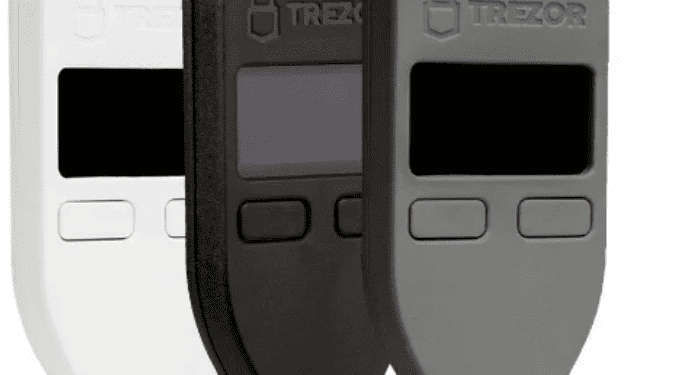To enable CoinJoin on its Model T wallet, Trezor worked with Wasabi Wallet. This allows users to improve the privacy and security of Bitcoin transactions.
- On its Trezor Model T wallet, Trezor has introduced the CoinJoin functionality, which enables users to increase the anonymity and security of their Bitcoin transactions.
- By allowing users to contribute their BTC as a part of a sizable cooperative transfer and obscuring transaction history, CoinJoin is a method for anonymizing Bitcoin transactions.
Trezor & CoinJoin Joint Venture
CoinJoin, a privacy-enabling technology that enables users to conduct Bitcoin transactions with increased security and anonymity, has been launched by Wasabi Wallet and Trezor, two well-known cryptocurrency hardware wallet providers. The new feature is now available for Trezor Model T wallets and will soon be made available for the Model One, the company’s original hardware wallet.
By enabling users to submit their BTC as part of a sizable collaborative transfer that obscures the transaction history, CoinJoin is a procedure that makes it easier for people to send anonymous Bitcoin transactions. Gregory Maxwell, a former Bitcoin core developer, introduced it in August 2013 as a way to send BTC transactions more discreetly.
Enabling CoinJoin on Trezor Wallet
Users must create a new CoinJoin-account on the main Trezor menu to enable CoinJoin. Along with additional account types like Segregated Witness (SegWit) and Bitcoin Taproot accounts, the new CoinJoin feature is also available. The CoinJoin feature on Trezor also urges users to allow the anonymous communication channel, Tor, to maximize privacy.
CoinJoin is an optional feature that requires users to transmit their coins to a specific CoinJoin account, according to Josef Tetek, Trezor’s Bitcoin expert. He added that because complete blocks must be downloaded and a slower connection on Tor is used, creating a CoinJoin account using a Trezor hardware wallet can take longer than creating a standard account.
Fee and Time Associated with CoinJoin
CoinJoin allows for greater secrecy, but because users must pay a coordinator charge, coinjoined transactions are a little more expensive. Users are required to pay the mining fee for each round of CoinJoin in addition to the coordinator fee, which is levied at 0.3%. The outputs can be used just like any other Bitcoin outputs after the procedure, which could take up to several hours.
Trezor Values Privacy
The CEO of Trezor, Matej Zak, highlighted that the company sees privacy as people’s most valuable asset. Therefore, he continued, “We’re happy that we’ve discovered a way for our community to maintain the privacy of their Bitcoin history.” Trezor, following in the footsteps of software wallets like Wasabi, is the first hardware wallet to incorporate CoinJoin, claims the company.
Conclusion
By partnering with Wasabi Wallet to add CoinJoin to its hardware wallets, Trezor has advanced the security and anonymity of Bitcoin transactions. Thanks to the new feature, users can send Bitcoin anonymously and conceal their transaction history and balance. Although setting up a CoinJoin account and using the functionality may be more time-consuming and expensive, Trezor’s emphasis on privacy highlights its dedication to providing its users with improved security and anonymity.














